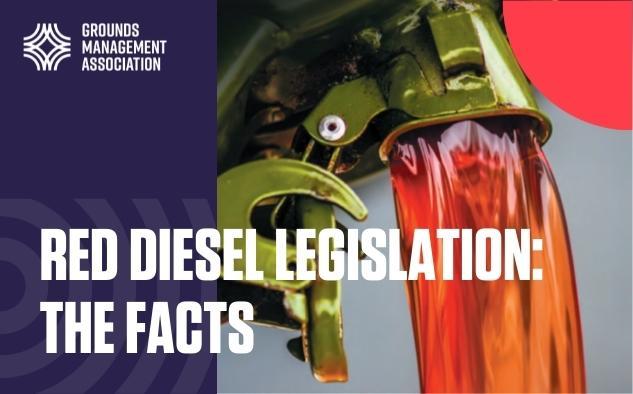
Red Diesel Legislation: The Facts
As part of the UK’s commitment to reducing its contribution to global warming, the Government has reviewed the use of red or rebated fuel. Here, we explain the changes and how the industry will need to comply
Written by: Paul Bannister, Amenity
A recent Government report regarding the use of red diesel states that the “use of red diesel accounts for around 15 per cent of all the diesel used in the UK and contributes to nearly 14 million tonnes of carbon dioxide a year”. It also identifies diesel as one of the most polluting fuels, and that those currently entitled to use it (including the construction, agriculture and airfield maintenance sectors) pay a lower duty than white diesel, and therefore pay less for the harmful emissions they produce.
In the 2020 budget, there was an outline to remove the use of red diesel for most sectors from 1 April 2022, with agriculture being an exception (including forestry, horticulture and fish farming).
However, landscaping and the maintenance of recreational facilities are not considered an accepted activity that falls within the Government’s Memorandum of Agreement section 9. There are some cases, though, where the use of rebated diesel and biofuels in vehicles and machines used on land maintained by community amateur sports clubs, golf courses and driving ranges will be permitted, but this does not extend to its use on public highways, where white fuel must be used.
Meeting Compliance
According to Government regulations’ compliance, the users of vehicles and machinery that are losing entitlement must not stock up on or run down existing stocks of red diesel in the lead up to and after next year’s deadline, and illegal use will incur penalties.
End users will not need to flush out the vehicles or machinery tanks, although the potential impact on the environment from incorrect disposal procedures is of considerable concern. Some of these vehicles and machinery may be seldom used so it may not be possible to empty the tanks and change to white diesel prior to the deadline date, and traces may be evident.
The HMRC will offer guidance and record-keeping will be key to providing evidence for compliance. This includes keeping invoices and receipts showing the dates of red diesel purchased prior to the deadline date, and the purchasing of white diesel after this date to show the transition. HMRC officers will “consider the type of machinery and the frequency of use in deciding whether detected traces are at a level consistent with compliance with the new rules”.
With the industry’s drive towards electric machinery and eco-friendly fuels, it won’t be long before vehicles and machinery relying on diesel will be phased out, which will suit the inevitable change in working practices.
This article was originally featured in the winter edition of our seasonal member magazine, Grounds Management. If you would like to read more articles like this about the turf-care industry and receive many other member-only benefits such as discounts on training, you can become a member today by following this link.
Further information:
The Government report on red diesel can be viewed by clicking here
See CASC club guidance here
The definitions that HMRC applies to agriculture, horticulture and forestry can be found here
Standard Petrol is Changing to E10: Almost 95 per cent of petrol-powered road vehicles can use the new E10 petrol to help cut carbon emissions. Use the online vehicle checker to see if your vehicle is compatible by clicking here
